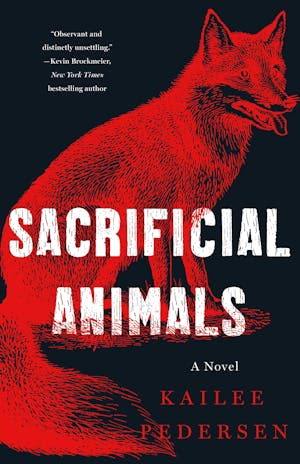Book details
Sacrificial Animals
A Novel
Author: Kailee Pedersen


About This Book
Book Details
Inspired by Kailee Pedersen's own journey being adopted from Nanning, China in 1996 and growing up on a farm in Nebraska, this rich and atmospheric supernatural horror debut explores an ancient Chinese mythology.
The last thing Nick Morrow expected to receive was an invitation from his father to return home. When he left rural Nebraska behind, he believed he was leaving everything there, including his abusive father, Carlyle, and the farm that loomed so large in memory, forever.
But neither Nick nor his brother Joshua, disowned for marrying Emilia, a woman of Asian descent, can ignore such summons from their father, who hopes for a deathbed reconciliation. Predictably, Joshua and Carlyle quickly warm to each other while Nick and Emilia are left to their own devices. Nick puts the time to good use and his flirtation with Emilia quickly blooms into romance. Though not long after the affair turns intimate, Nick begins to suspect that Emilia’s interest in him may have sinister, and possibly even ancient, motivations.
Punctuated by scenes from Nick’s adolescent years, when memories of a queer awakening and a shadowy presence stalking the farm altered the trajectory of his life forever, Sacrificial Animals explores the violent legacy of inherited trauma and the total collapse of a family in its wake.
Imprint Publisher
St. Martin's Press
ISBN
9781250328243



